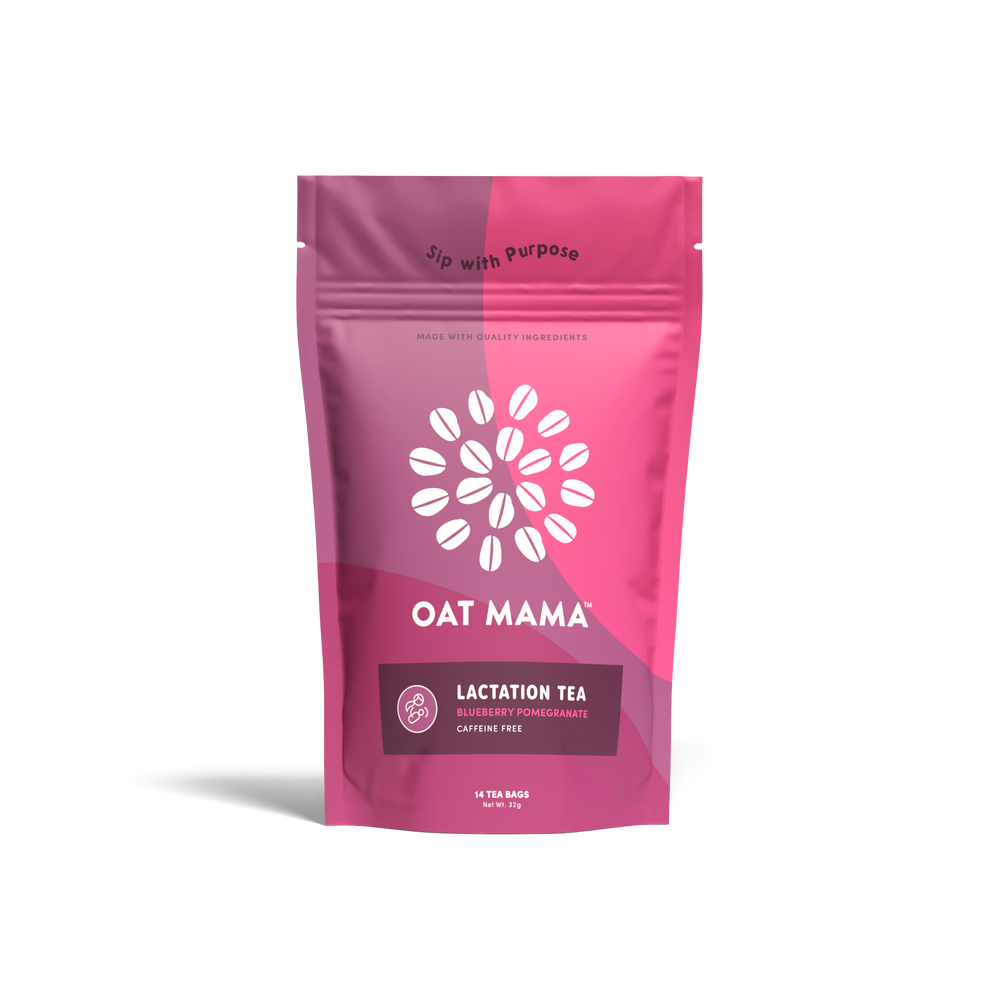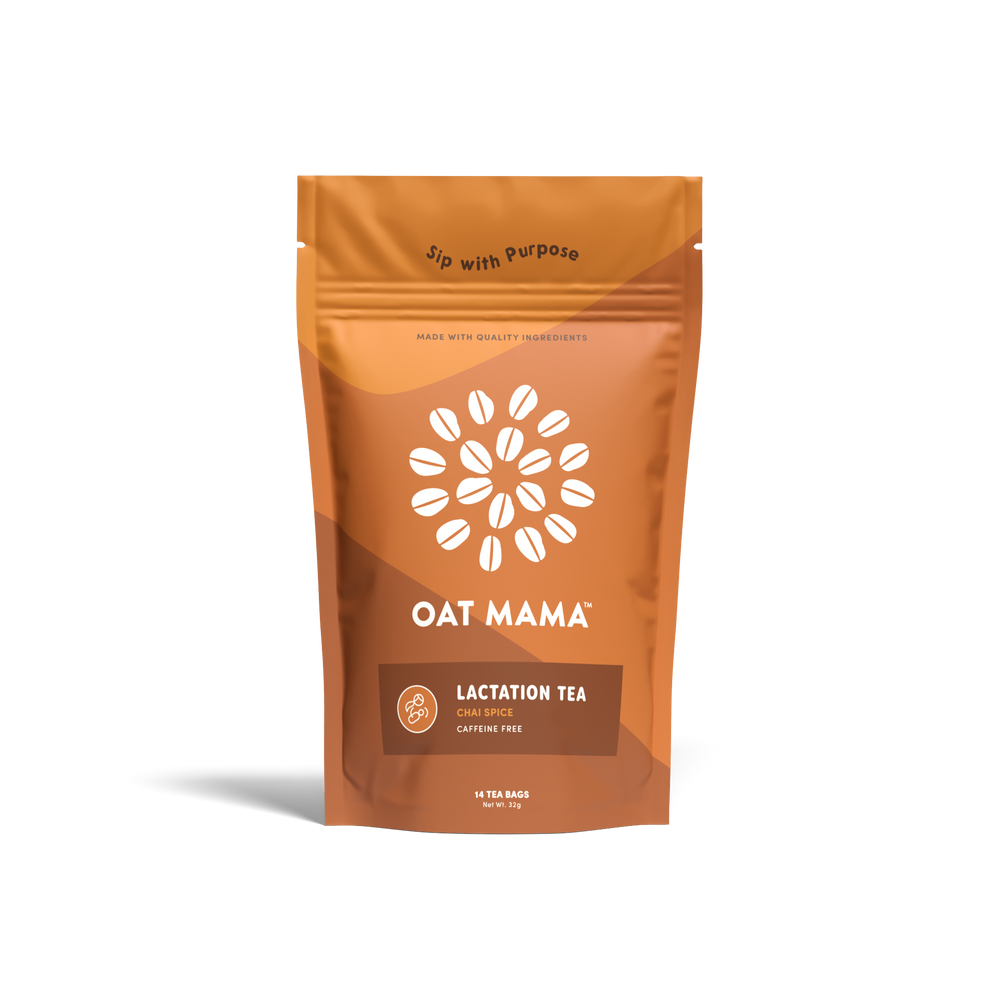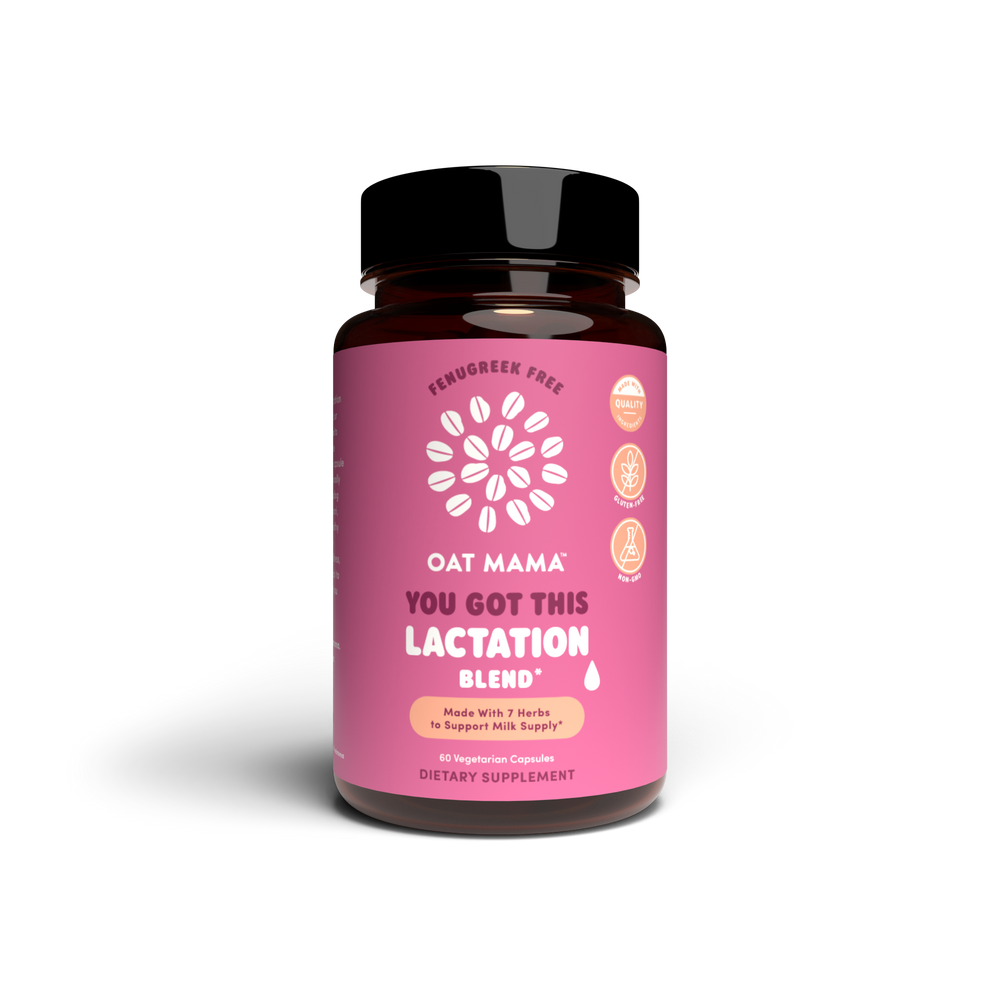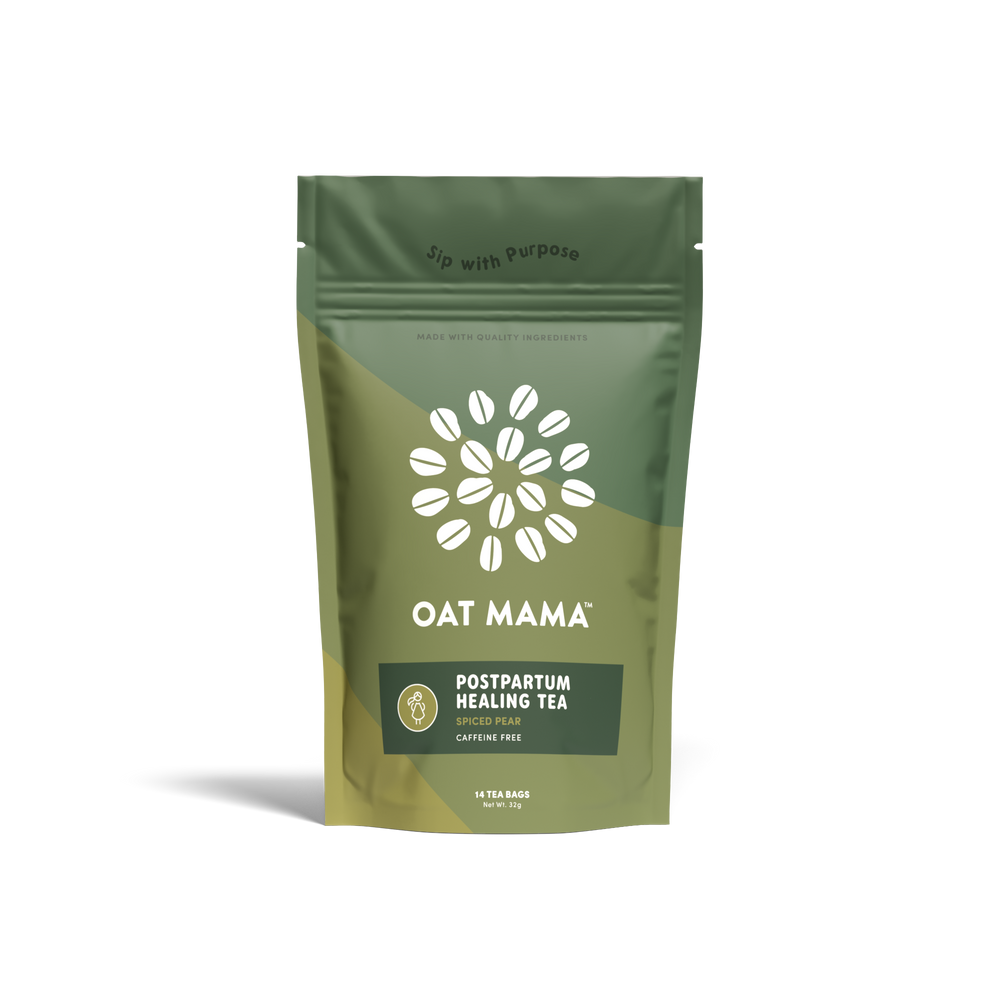
Breastfeeding can be beautiful, challenging, confusing—and sometimes all three at once. That’s why we’re thrilled to welcome Maryam Richards, Certified Lactation Consultant (CLC), Holistic Pediatric Sleep Specialist, mom of two, and founder of Because of Bebé, to answer all your burning breastfeeding questions. From myths like “do small breasts mean low milk supply?” to the timing of colostrum and why breastfeeding is actually a learned skill, Maryam brings her expert insight and real-life experience to the table. Whether you’re preparing for your first baby or navigating a new feeding journey, this Q&A is packed with helpful, reassuring info every parent should know.

We love how you are supporting families through sleep challenges and breastfeeding. Can you please introduce yourself, share a bit about yourself, and what inspired you to enter this field?
Thank you so much! My name is Maryam Richards, and I’m a Holistic Pediatric Sleep Specialist and Certified Lactation Counselor (CLC). I live in Seattle, Washington, with my husband of ten years and our two beautiful daughters.
What brought me into the world of sleep and lactation was the profound lack of support I experienced after the birth of my first daughter in 2017. After a relatively smooth pregnancy, I was completely unprepared for the struggles we would face. My daughter had a highly sensitive temperament, lower sleep needs than expected, and breastfeeding was anything but intuitive. I was told, simply, to “feed every 2–3 hours” and that she “needed to sleep in a crib”- no real explanation, no alternatives, and no compassion.
When she lost 8% of her birth weight, and we found ourselves sleeping in a rocking chair (the most dangerous setup imaginable), I knew something had to change. I stopped watching the clock, stopped following rigid rules, and began to trust my instincts. I created what I believed was a safer bedsharing environment so we could get some rest and begin to heal.
After she turned two, I began sharing our story, and the response was overwhelming. It became clear that I was far from alone. So many parents were navigating similar challenges without adequate support. That’s why I founded Because of Bebé, to normalize sleep struggles, to celebrate breastfeeding, and to offer grounded, evidence-based guidance rooted in compassion and flexibility. There is no one-size-fits-all solution, and you don’t have to suffer silently. You deserve to be informed, empowered, and seen.
Why is breastfeeding important—for both the baby and the mother?
Breastfeeding offers powerful benefits for both mother and baby: physically, emotionally, developmentally, and even economically. That’s why the World Health Organization (WHO), UNICEF, and the U.S. Department of Health (via the Healthy People 2030 goals) all recognize breastfeeding as a major public health priority.
For Mothers:
- Faster postpartum recovery: Breastfeeding triggers the release of oxytocin, which helps the uterus contract and reduces bleeding after birth.
- Reduced risk of chronic diseases, including:
- Heart attack and cardiovascular disease
- Metabolic syndrome and type 2 diabetes
- Hypertension (high blood pressure)
- Hyperlipidemia (high cholesterol)
- Breast, endometrial, and ovarian cancers
- Emotional and psychological benefits:
- Strengthened mother-infant bonding
- Improved maternal confidence and responsiveness
- Lower risk of postpartum depression
For Babies:
- Tailored nutrition: Breastmilk offers the perfect balance of proteins, fats, vitamins, and carbohydrates- uniquely suited to your baby’s age and needs. The composition adjusts within a single feed, across the day, over the course of lactation, and in response to illness (even if baby is away from you).
- Immune protection: Breastmilk is rich in immunoglobulins (especially IgA), white blood cells, and protective factors that help reduce:
- Respiratory illnesses
- Ear infections
- Diarrhea and GI infections
- Chronic conditions like asthma, eczema, Type 1 diabetes, some childhood cancers, and obesity
- Brain and eye development:
- Contains DHA and other long-chain fatty acids critical for neurodevelopment
- Studies suggest a slight but significant increase in IQ with longer durations of breastfeeding
- Digestive health: Breastmilk is easier to digest than formula and encourages healthy gut bacteria and gut lining development, reducing risks of colic, gas, and constipation.
- Bonding and emotional regulation: Skin-to-skin contact and closeness help regulate baby’s stress response and support emotional security.

What are some common misconceptions about breastfeeding that you'd like to correct? (Myths like “breastfeeding is always natural and easy,” or “small breasts mean low milk supply.”)
I love this question because debunking these myths can immediately relieve stress and self-doubt for new parents. Here are some of the most common ones I hear, and the truth behind them:
Myth #1: "Small breasts mean low milk supply."
Truth: Breast size is not an indicator of how much milk you can produce. Milk supply depends on the amount of glandular tissue (not fat tissue) and the presence of functional milk ducts (not cup size). Sadly, some healthcare providers still make assumptions based on appearance alone. This reinforces outdated advice like “feed every 2–3 hours,” when in reality, breastfeeding should follow baby’s cues, not the clock.
Myth #2: "You must drink a ton of water to make enough milk."
Truth: While hydration is important, research does not support the idea that drinking excessive fluids increases supply. Breastfeeding parents should meet their normal hydration needs, but there's no evidence that drinking more than that improves milk production.
Myth #3: "Exercise reduces supply."
Truth: Multiple studies show that moderate exercise does not affect milk volume, nutritional content, or your baby’s growth. Breastfeeding and movement can coexist beautifully.
Myth #4: "Lack of sleep will tank your milk supply."
Truth: If you’re just tired from night wakings (and who isn’t in early parenthood?), your supply is likely fine. However, if you’re experiencing extreme fatigue, like falling asleep during conversations or struggling to function, it’s worth checking for underlying conditions like anemia, thyroid imbalance, or postpartum depression- all of which can affect milk production.
Myth #5: "Stress makes milk dry up."
Truth: Chronic or traumatic stress that disrupts feeding routines can affect supply, but everyday stress and worry are unlikely to cause a major drop. In fact, studies show that breastfeeding parents tend to report more positive moods and perceive less stress over time. If you’re feeling overwhelmed, focus on consistency with feedings and seek support where you can.
Myth #6: "Hindmilk is better than foremilk."
Truth: While hindmilk tends to have higher fat content and comes toward the end of a feed, foremilk is not “watery” or inferior. The two types of milk often overlap in fat content, and both are essential. If you're hoping to boost the fat content of your milk, feed frequently and efficiently - especially between 4pm and 10pm, when your milk is naturally higher in fat, but lower in volume.
What does a typical breastfeeding journey look like in the first few weeks postpartum?
The first few weeks postpartum are incredibly important in establishing your breastfeeding relationship, but they can also be intense, overwhelming, and unpredictable. What’s “typical” will vary depending on many factors like your birth experience, baby’s gestational age, anatomy, and your own prenatal and postpartum health.
With that said, there are some common stages most families experience in those early days:
- Immediately after birth: Once the placenta is delivered, progesterone levels drop and prolactin and oxytocin take over. This hormonal shift triggers milk production. It’s essential that prolactin receptor sites in the breast stay activated, which happens through early and frequent suckling. This is why skin-to-skin contact and breastfeeding within the first hour after birth are so critical.
- Colostrum (Days 1–3): Colostrum is your first milk, and yes, it is milk! It’s thick, golden, and nutrient-rich, designed in small volumes to match your baby’s tiny stomach and immature suck-swallow coordination. Perfect for practicing!
- Cluster feeding (typically Day 2): Around this time, baby often wants to nurse constantly. This is exhausting, but completely normal. It’s how your baby signals your body to increase milk production. Frequent nursing = more milk.
- Transitional milk (Days 3–5): Your milk gradually shifts from colostrum to transitional milk, a mix of early and mature milk, that’s higher in volume but still rich in immune factors. You may feel your breasts become fuller or even engorged during this phase.
- Mature milk (By Day 10–14): Most breastfeeding parents begin producing mature milk within 1–2 weeks postpartum, depending on birth factors and feeding frequency. This milk changes in composition throughout the day and is perfectly suited to your baby’s growth needs.
Keep in mind:
- Cesarean births may delay milk transitions due to IV fluids, medications, and delayed skin-to-skin contact.
- Babies need to feed 10–12 times per day in the early weeks, including overnight.
- By Day 4, your baby should have at least four soiled (poopy) diapers a day. We call this the “Four on Four” rule: four poops on day four and each day after.
- Poop should be seedy and mustard-colored, which indicates milk intake
- A sleepy baby, missed feeding cues, or latch issues can impact intake, so it’s important to monitor, stay responsive, and ask for help if you need it.
What should a mother do if she thinks her baby isn’t getting enough milk?
This is one of the most common concerns, and for good reason. Research shows that nearly 40% of breastfeeding parents in the U.S. worry about their milk supply. Luckily, many of these fears are rooted in perception, not actual milk insufficiency.
Here’s what to do:
-
Trust your instincts and seek help early.
If something doesn’t feel right, reach out to a Certified Lactation Counselor (CLC) or International Board Certified Lactation Consultant (IBCLC). They can assess latch, observe a feed, and do a weighted feed (measuring baby’s intake before and after nursing). - Monitor soiled diapers and body cues.
- Soiled (poopy) diapers are your best indicator of milk intake, especially in the early weeks.
- Hand cues: If your baby’s hands are tight fists after a feed, they may still be hungry. Open, relaxed hands = content and well-fed.
- Weight gain: Babies should regain their birth weight by about 2 weeks. Slow gain might signal the need for more frequent or efficient feeds.
-
Understand natural shifts in your body.
Around 2–4 months postpartum, many parents stop feeling “full” or engorged. This doesn’t mean your supply is drying up, it means your body is now regulating milk production based on demand. - Look for other influencing factors:
- Supply dips can happen with illness, menstruation, nursing strikes, or long gaps between feeds.
- Excessive pressure or skipped sessions (especially at night) can suppress supply.
- Pump output is not a reliable measure of supply, since babies are much more efficient than pumps!
If you’re unsure, don’t wait. You deserve to feel confident and informed. You don’t have to figure it out alone.
What are some of the most common challenges new mothers face with breastfeeding—and how can they overcome them? (Issues like latching, nipple pain, engorgement, supply concerns.)
So many parents encounter early hurdles, and while it can feel frustrating or discouraging, these are often fixable with support and practice. Here are some of the most common challenges I see, and how to address them:
1. Shallow or painful latch
A poor latch is the root of many issues, from nipple pain to poor milk transfer.
Solution:
- Latch baby during quiet alert or light REM sleep
- Baby’s nose should align with the nipple, mouth wide open, chin and bottom lip hitting the breast first
- Nipple should aim toward the roof of the mouth; lips should form a tight seal
- Look for a wide mouth angle (~140°) and listen for consistent swallows
If baby struggles to latch deeply, body tension or oral restrictions (like tongue or lip ties) may need to be assessed. A provider, like a craniosacral therapist, osteopath, or pediatric dentist, can help alongside your lactation consultant.
2. Nipple pain or damage
Nipples may feel tender in the beginning, but they should never be cracked, bleeding, or consistently painful.
Solution:
- Deepen the latch (see above)
- Use silver nursing cups or allow nipples to air dry between feeds
- If baby clamps or has a weak suck, have them evaluated for oral ties or oversupply
- A pacifier may be helpful if baby is nursing for comfort and you need a break
3. Engorgement
Engorged breasts can be firm, swollen, and painful, making it hard for baby to latch and uncomfortable for you.
Solution:
- Try block feeding (nursing on one side per session)
- Use laid-back or “Australian” positions to slow milk flow
- Hand express or pump a small amount before latching to soften the breast
- For relief, submerge your breast in a warm water basin and let gravity help
4. Plugged ducts and mastitis
These are painful but often resolve with consistent care.
Solution:
- Identify the cause: oversupply, tight bra, skipped feeds?
- Massage and apply warmth or cold (whichever feels best to you)
- Feed frequently (baby’s chin facing the clog can help)
- If symptoms last more than 24–48 hours, or you develop a fever, consult your provider
5. Low weight gain
If baby isn’t gaining weight well, it can feel incredibly stressful, but with support, progress is possible.
Solution:
- Get a full feeding and weight assessment from a CLC or IBCLC
- Feed more frequently (including overnight)
- Focus on feeding during times when fat content is naturally higher (late afternoon to evening)
- Consider adding pumping sessions and offering bottles between feeds
- Check diaper output and baby’s post-feed cues (relaxed hands, content behavior)
How can partners and family members support a breastfeeding mother?
This question makes my heart happy because support from loved ones is absolutely crucial to a successful breastfeeding journey. In fact, research shows that mothers are more likely to breastfeed, and for a longer duration, when they feel supported by their partners and family members.
Here’s how support can look:
1. Emotional Support
- Offer reassurance. Tell her she’s doing an incredible job (because she is).
- Be patient and avoid comparing her journey to someone else’s.
- Check in regularly: How are you feeling? What do you need right now?
2. Practical Help
- Bring her water and snacks while she’s nursing (breastfeeding parents need about 300–500 extra calories a day).
- Take over household tasks: laundry, dishes, meals, so she can focus on recovery and bonding.
- Hold the baby after feeds so she can shower, rest, or just have a moment to herself.
3. Nighttime Support
- Even if only she’s feeding, a partner can handle diaper changes, burping, or soothing.
- Be her second set of eyes. If baby’s latch looks off or she seems uncomfortable, kindly ask if she wants help repositioning.
- If she’s pumping or bottle feeding expressed milk, offer to give a bottle and clean pump parts afterward.
4. Advocate for Her
- If a visitor questions her feeding choices, set boundaries.
- If she’s unsure about advice from a provider or family member, help her find evidence-based information or support her decision to seek a second opinion.
- Protect her space, peace, and rest.
This isn’t just about “helping”- it’s about showing up as an active part of her team. Breastfeeding is a family effort.
What are your top tips for building confidence as a breastfeeding parent—especially when breastfeeding feels hard?
I especially love this question because there will be times in your breastfeeding journey when it feels almost impossible. Maybe it’s right after you come home from the hospital, during teething, or when you're considering weaning. Whether it’s pressure from others to stop, feeling touched out, worrying about your supply, or simply the weight of constant feeding demands, there will be moments when it feels unbearable, and it’s helpful to be prepared for them.
Here are my top tips for building confidence during those tough times:
- Remind yourself: it will never be as hard as it is right now. The learning curve flattens over time. As you practice, seek help, and build comfort, breastfeeding gets easier and more intuitive.
- Track your progress. Keep a small journal or diary by your bedside to document small wins and moments where you overcame a challenge. These notes can be powerful reminders during the harder days.
- Focus on the process, not perfection. If you’re feeling overwhelmed, calm your mind by watching your favorite show or listening to a podcast while feeding.
- Get support early and often. Reach out to an IBCLC, CLC, postpartum doula, anyone who can provide skilled, compassionate support. Be mindful of providers who use a hands-on approach without consent, that can create more vulnerability and discomfort for you.
- Create a cozy nursing sanctuary. Stock it with nourishing snacks, a fresh pair of pajamas, a good book, a water bottle, and a comfy nursing bra or tank. Ask your partner to help keep it stocked. If you're returning to work, treat yourself to a practical pump bag and a few new button-down shirts.
- Find your support system. Whether it’s a Facebook breastfeeding group, a local or virtual support circle, or friends and family who’ve breastfed- surround yourself with people who uplift you. Organizations like La Leche League and Global Military Lactation Communities (for military families) offer peer-led, mom-t0-mom support across the U.S. and beyond.
- Celebrate what breastfeeding gives you. Lowered risk of breast and ovarian cancer, fewer pediatric visits for ear infections, and powerful bonding- all of it matters.
- Know what’s normal and plan for challenges. Sore nipples, clogged ducts, oversupply, low supply, cluster feeding, and nursing for comfort are all common. Some resolve with time, some with support. Have a “who to call” list ready—an IBCLC, CLC, support group, or trusted postpartum doula.
- Your feelings are valid. You’re allowed to cry, feel overwhelmed, and take breaks. Sleep deprivation and hormones are no joke. Know where your safe, judgment-free zones are, and don’t feel guilty for needing space.
- Trust your body and your baby. Look at photos of how much your baby has grown. Let those visual reminders of their progress reflect the impact of your effort.
- And remember: formula is not always the easier path. Every feeding journey comes with effort and emotional weight. If you choose to breastfeed, you deserve support that makes the path feel more possible.
How do pumping and bottle feeding fit into a breastfeeding journey?
Pumping and bottle feeding can be part of any breastfeeding journey, and how they fit in is different for every family. Some parents exclusively pump due to anatomy, work schedules, or personal preference. Others pump occasionally to build a stash of milk, involve a partner in feeding, get some extra rest, or make returning to work smoother.
Pumping can also be useful for:
- Drawing out inverted nipples before latching
- Relieving engorgement
- Supporting milk supply when baby isn’t feeding directly
With the variety of pumps now available, there’s something for everyone:
- Wearables are popular for convenience and mobility, but they may not express milk as efficiently as a traditional pump.
- Flange size matters. It’s not one-size-fits-all. Always refer to the sizing guide in your pump manual and know that nipple size can change throughout your journey.
- Replacement parts wear out and need to be replaced regularly to maintain suction and efficiency.
The key is choosing the method that supports your lifestyle, mental health, and breastfeeding goals. There’s no right or wrong way to include pumping, it’s all about making breastfeeding sustainable and supportive for you.
What should mothers know about feeding in public and their rights when breastfeeding?
Knowing your right and your power when breastfeeding in public is essential! Many mother’s worry about how they will be viewed and treated, but there are many laws in both the US and Canada that strongly protect your right to feed your baby anywhere, anytime.
In the U.S.:
- All 50 states, the District of Colombia and Puerto Rico have laws that explicitly allow breastfeeding in public.
- These laws generally state that a woman may breastfeed her child in any public or private location where she is otherwise authorized to be - regardless of whether the breast is exposed during a feeding.
- As for workplace protections, the PUMP Act (2022) requires employers to:
- Provide a reasonable break time for expressing milk for 1 year after birth
- Offer a private, non-bathroom space to pump.
- Helpful U.S. Resources:
U.S. Breastfeeding Laws by State (NCSL): https://www.ncsl.org/health/breastfeeding-state-laws
Office of Women’s Health - Breastfeeding: https://womenshealth.gov/breastfeeding
La Leche League USA: https://lllusa.org
In Canada:
- In every province and territory, breastfeeding in public is protected under human rights laws.
- Discrimination against a woman for breastfeeding (e.g. being asked to leave, cover up or stop) may be considered a violation of her human rights.
- You are legally entitled to nurse anywhere, anytime your baby needs to feed - without being asked to cover up.
- You are able to file a complain with your provincial/territorial human rights commission if your rights are violated.
- Helpful Canadian Resources:
La Leche League Canada: https://www.lllc.ca
Canadian Human Rights Commission: https://www.chrc-ccdp.gc.ca
Public Health Agency of Canada - Breastfeeding Information
In General:
- You do not need to ask for permission to breastfeed
- You can choose to use a cover- or not. that’s your decision, not anyone else’s.
- Know simply replies like: “I’m just feeding y baby, which is protected by law.”
- Keep a copy of local laws or a helpful app/resources on your phone if you feel anxious.
Apps and Tools Mom Love:
- MamaBear Legal Forms - US based legal info, including breastfeeding protections
- LatchME - Peer support and breastfeeding-friendly locations
- La Leche League groups on Facebook - Real-time support and tips from other nursing parents.
- If you could tell every new mother one thing about breastfeeding, what would it be?
Oh gosh, it’s hard to choose just one thing, but if I had to, it would be this:
Even though breastfeeding is natural, it’s also a learned skill, for both you and your baby.
Yes, your body is designed to nourish your baby. But you’re both learning, and it takes practice, patience, and support. You’re a team, learning how to work together, and that takes time.
You’ll likely need help along the way, and that’s okay. Not all providers are equally helpful, so if something doesn’t feel right, trust your gut. Ask questions. Seek second opinions. Reach out to moms in your community. So many people want to help you succeed.
Most of all, remember: you get to define your own breastfeeding journey. Every drop of breastmilk counts. You’re doing an incredible job!



